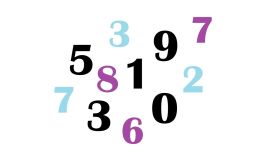Argentine officials walked back a temporary ban on beef exports on Tuesday just hours after rolling it out as the fallout from an abrupt currency devaluation is zigzagging emergency policy decisions.
The policy uncertainty comes after a stunning primary election Sunday night when outsider candidate Javier Milei won the race, becoming the frontrunner before the October 22 general vote. In Argentina, one of the world’s largest beef exporters, policies that affect beef prices quickly touch a social nerve as its a key part of the local diet.
After the country’s customs office announced a 15-day beef ban midday Tuesday, Agriculture Secretary Juan José Bahillo denied the measure. Hours later, he released a joint statement with Guillermo Michel, the head of Argentina’s customs agency, saying they were negotiating an agreement with beef producers on volumes and prices for the domestic market that would allow them to continue exporting. No other details were provided.
Beef industry advocates were immediately sceptical about a price agreement cooling prices anytime soon.
“This won’t control meat price increases for all consumers,” says Miguel Schiariti, head of Argentine beef industry group Ciccra. “These agreements with the export sector are only about six to seven percent of all the meat consumed in Argentina.”
Argentina is bracing for rampant inflation to accelerate even further after the cash-starved government ran out of dollars to defend the peso and let it plunge 18 percent overnight, as Milei sprang a surprise in a key primary vote. That prompted 20 percent overnight price hikes including in the local cattle market where a kilo of meat went from 664 pesos last week to 783 by Tuesday.
The government is now scrambling to stop the devaluation from rapidly and fully passing through to all types of local food and fuel prices.
Argentines vie with their neighbors in Uruguay as the world’s biggest consumers of red meat, so politicians closely watch prices. The government already has a longtime ban on exports of seven beef cuts most popular with locals.
Even before the devaluation, increases to domestic beef prices were expected over the next few months.
Most of Argentina’s beef exports go to China.
related news
by Jonathan Gilbert & Ignacio Olivera Doll, Bloomberg




















Comments